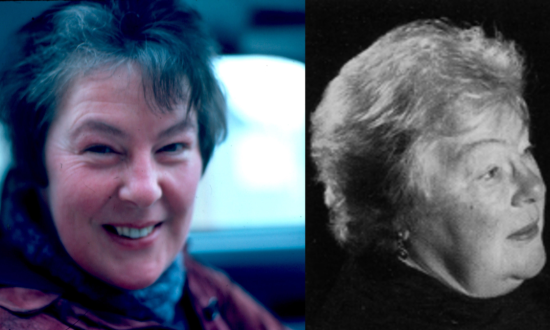Death of a Surrey Pioneer: Josephine Arendt, 1941–2023
Our University is mourning the death of a pioneering researcher – Professor Josephine Arendt, Emeritus Professor of Endocrinology, who passed away on Monday 4 September.
Professor Arendt was instrumental in founding the specialisms in Sleep and Chronobiology here at the University of Surrey that are world-renowned today.
Below are a few words from Professor Debra Skene, who considered Professor Arendt a mentor and a friend for almost 40 years:

It is with great sadness that we report the sudden and unexpected death of Josephine Arendt on 4th September 2023. Jo joined the University of Surrey in 1977, established the Centre for Chronobiology at Surrey, and continued making an academic contribution as Emeritus Professor.
Jo was internationally recognised for her enormous contribution to the field of melatonin, circadian rhythms, and sleep, with over 280 publications. She pioneered immunotechnology for the detection and measurement of melatonin and its metabolites, their circadian and seasonal response to light, and their use to characterise circadian responses particularly in conditions such as jet lag and shift work. She first described the chronobiotic properties of melatonin in relation to sleep and the circadian system and initiated its use for circadian rhythm-related sleep disorders such as jet lag and non-24-hour sleep disorder of the blind. She characterised the importance of light and melatonin in humans, pursuing research in this area particularly in polar regions.
Frustrated by a lack of funding for research, in 1988 Jo founded a company, Stockgrand Ltd (10% university-owned), to exploit her radioimmunoassay expertise, with all profits supporting research and many PhD studentships. This technology helped research worldwide, and today measurement of melatonin is considered to be the most reliable biomarker of circadian clock timing.
Despite being overlooked by the male-dominated UK Royal Society and Academy of Medical Sciences, Jo achieved many honours: Fellow of the Royal College of Pathology, Fellow of the Royal Society of Medicine, Medal of St Goran’s Hospital (Karolinska Institute), Medal of Justus von Liebig University (Giessen), Ernst and Berta Scharrer Medal (University of Frankfurt), European Biological Rhythms Society Johannes Ariens Kappers Medal, and Doctor honoris causa (Medical University of Lodz, 2007). She was a founding member of the European Biological Rhythms Society (previously the European Pineal Study Group, the European Pineal Society, then the European Pineal and Biological Rhythms Society) and of the Society for Light Treatment and Biological Rhythms. She served as President of The European Pineal Society (1987-1990), President of the Gordon Research Conference on Pineal Cell Biology (1998-2000), and a Board Member at Large for the Society for Research on Biological Rhythms.
Jo was a true European. She collaborated with many European laboratories, supporting Eastern European colleagues pre-1989 and mentoring many European early-career researchers. She was a Francophile, fluent in French, and a lover of French wine and food.
I was fortunate to be Jo’s first postdoctoral researcher in 1984, and for the past 39 years, I have had the privilege to have her as a mentor, colleague, and friend. She was my guiding star! Her kindness and generosity, both academically and socially, were much appreciated by many colleagues. She had a warm, caring nature, and her joie de vivre was infectious.
To get a flavour of Jo’s intelligence and personality, listen to these clips from the History of Modern Biomedicine and the Physiological Society.
The field has lost one of its shining stars. Surrey can be proud of a woman in science.
Featured Academics
Media Contacts
External Communications and PR team
Phone: +44 (0)1483 684380 / 688914 / 684378
Email: mediarelations@surrey.ac.uk
Out of hours: +44 (0)7773 479911

